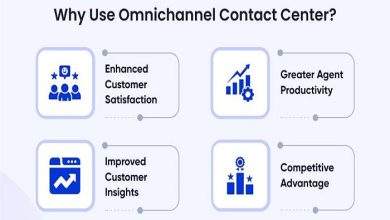
Overview of Statutory Entitlements
In Mexico, a set of legally required benefits forms the bedrock of any employee compensation package. These statutory entitlements are not optional; they are mandated by the Federal Labor Law and aim to provide a safety net for workers. They cover essential areas like healthcare, income protection, and basic financial security. These benefits are a non-negotiable aspect of employing staff in Mexico.
Understanding these core requirements is the first step for any employer operating in the country. Failing to provide these mandatory benefits can lead to significant legal and financial repercussions. It’s about more than just compliance; it’s about respecting the rights of your workforce and building a stable employment environment.
Who Is Entitled to Benefits
Generally, all individuals working under an employment contract in Mexico are entitled to statutory benefits. This includes full-time, part-time, and even temporary workers, though the specifics might vary slightly based on the contract’s nature and duration. The key is the existence of an employer-employee relationship, as defined by Mexican labor law.
Independent contractors or freelancers typically fall outside this scope, as they are not considered employees. Employers must ensure that all eligible employees are registered and receive their rightful benefits. This entitlement is a cornerstone of worker protection in Mexico.
The Role of Federal Labor Law
The Federal Labor Law (Ley Federal del Trabajo) is the primary legislation governing employment relationships and mandatory benefits in Mexico. It clearly outlines the rights and obligations of both employers and employees. This law provides the framework for benefits such as paid vacation, bonuses, and social security contributions.
This legislation is designed to create a fair and equitable workplace. It ensures that employees receive a minimum standard of support, regardless of their employer’s size or industry. Staying informed about the Federal Labor Law is key to maintaining compliance and avoiding penalties.
Key Mandatory Benefits Explained
Social Security Contributions (IMSS)
In Mexico, employers must contribute to the Mexican Social Security Institute, known as IMSS. These contributions cover a range of benefits for employees, including healthcare services, disability and life insurance, retirement pensions, and unemployment support. The employer’s contribution rate typically falls between 20% and 35% of an employee’s salary, varying based on the specific benefits included, the employee’s pay grade, and the industry’s risk classification. Employees also contribute a smaller portion, around 2.375% of their salary. These contributions are calculated based on the employee’s Integrated Daily Salary (Salario Base de Cotización or SBC), which also funds retirement accounts managed by AFOREs (Administradoras de Fondos para el Retiro).
Employers are legally obligated to register their employees with IMSS and make these payments monthly. Failure to do so can result in penalties and legal issues. Understanding the nuances of IMSS contributions is vital for maintaining compliance and providing employees with the security they are entitled to under Mexican law. This system is a cornerstone of worker protection in the country.
Paid Vacation and Vacation Premium
After completing one year of service, employees in Mexico are legally entitled to paid vacation time. The minimum entitlement starts at 12 days per year and increases with the employee’s tenure. In addition to the regular salary during this time off, employees must receive a vacation premium. This premium is set at a minimum of 25% of their regular salary for the vacation days. This benefit ensures that workers can take time off to rest and recharge without a loss of income, and the premium adds a little extra for their time away.
This paid vacation and premium are not just a perk; they are a statutory right. Employers must track employee service dates accurately to ensure the correct amount of vacation is granted and the premium is calculated properly. It’s a key part of the Federal Labor Law, promoting work-life balance.
Aguinaldo (Christmas Bonus)
The Aguinaldo, or Christmas Bonus, is a mandatory year-end payment that all employees in Mexico are entitled to receive. By law, this bonus must be at least 15 days’ worth of an employee’s salary and must be paid out no later than December 20th each year. For employees who have not worked a full calendar year, the Aguinaldo is prorated based on the time they have been employed. This bonus applies to all workers, regardless of whether they are full-time, part-time, or temporary.
While the Aguinaldo is subject to income tax, the first 30 days of the bonus amount are exempt from taxation. This benefit is highly anticipated by employees, often helping them cover holiday expenses and other year-end costs. It’s a significant part of the compensation structure and a well-established tradition in Mexican employment.
Profit-Sharing (PTU)
Profit-Sharing, or Participación de los Trabajadores en las Utilidades (PTU), is another mandatory benefit in Mexico. Under this law, companies are required to distribute 10% of their annual taxable profits among their employees. This distribution is typically done once a year, after the company’s annual tax return has been filed. The specific amount each employee receives is usually based on their salary and the number of days worked during the year, though specific formulas can vary.
This benefit aims to give employees a stake in the company’s success and reward their contributions to its profitability. It’s a way to align employee interests with business outcomes. All companies are generally subject to PTU, with some exceptions for newly established businesses or those meeting certain size criteria, as defined by the Federal Labor Law. Accurate calculation and timely distribution of PTU are critical for compliance.
Navigating Social Security and Housing Funds
Mexican Social Security Institute (IMSS) Coverage
Employers in Mexico have a legal duty to register their employees with the Mexican Social Security Institute, known as IMSS. This registration is not optional; it’s a core part of your compliance obligations. IMSS provides a wide range of services, acting as a safety net for workers. These include access to healthcare, maternity care, disability benefits, and retirement pensions.
Making timely contributions to IMSS is critical. These contributions are typically split between the employer and the employee, though the employer bears the larger share. The exact percentage depends on the employee’s salary and the type of coverage. Failure to register or contribute correctly can lead to significant fines and legal issues. It’s important to get this right from the start to avoid problems down the line.
The IMSS system is designed to protect employees against various life events, ensuring they have access to necessary services. Understanding the contribution structure and ensuring accurate reporting are key responsibilities for any business operating in Mexico. This system is a cornerstone of employee welfare and employer responsibility.
Housing Fund Contributions (INFONAVIT)
Beyond social security, employers must also contribute to the Housing Fund, managed by INFONAVIT (Instituto del Fondo Nacional de la Vivienda para los Trabajadores). This fund is specifically for employee housing. Employers are required to contribute a percentage of their employees’ salaries to this fund, which employees can then use to purchase, build, or repair a home.
Similar to IMSS, accurate and timely contributions to INFONAVIT are mandatory. The contribution rate is set by law, and employers must ensure they are calculating and remitting these funds correctly. This is another area where non-compliance can result in penalties. It’s a benefit that directly impacts an employee’s ability to secure housing.
The INFONAVIT system aims to provide a pathway for employees to achieve homeownership, supported by employer contributions. It’s a significant benefit that contributes to employee stability and well-being.
These two systems, IMSS and INFONAVIT, form the backbone of mandatory employee benefits in Mexico. They require careful attention to detail and consistent compliance from employers to operate effectively and legally.
Addressing Termination and Leave Requirements
Severance and Termination Benefits
When an employment relationship ends in Mexico, employers must follow specific rules regarding severance and termination benefits. These vary based on the reason for termination. If an employee is dismissed without a justified cause, they are entitled to significant compensation. This typically includes a payment equivalent to three months of their salary, plus an additional amount calculated as 20 days of salary for each year of service. Beyond these core payments, employees also receive any accrued benefits, such as unused paid vacation and their proportional Aguinaldo (Christmas bonus).
It’s important to note that if an employee resigns, they are generally entitled to a smaller package, usually comprising proportional payments of their annual bonus and any unused paid vacation days. For terminations with cause, the legal framework is different, and specific procedures must be followed to avoid disputes. Understanding these distinctions is key to compliant offboarding.
Proper legal advice is paramount during any termination process to ensure all obligations are met and to mitigate potential legal challenges. This includes meticulous documentation of the reasons for termination and adherence to procedural timelines.
Maternity and Paternity Leave Entitlements
Mexico’s Federal Labor Law provides specific entitlements for maternity and paternity leave. New mothers are granted 12 weeks of paid leave, typically split into six weeks before and six weeks after childbirth. This leave is primarily covered by the Mexican Social Security Institute (IMSS). Fathers, on the other hand, are entitled to five days of paid paternity leave, which is the employer’s responsibility to cover.
These provisions are designed to support employees during significant life events. Employers must ensure that these leaves are granted without prejudice to the employee’s position or benefits upon their return. Accurate record-keeping of leave periods is vital for compliance.
Remote Work Allowance Regulations
With the rise of remote work, Mexico has introduced specific regulations for teletrabajo (telework). If an employee performs more than 40% of their work remotely, the arrangement is legally classified as telework. In such cases, employers are obligated to cover a portion of the associated costs. This typically includes expenses for internet, electricity, and work-related supplies.
These costs are usually managed through a reimbursement system or a direct allowance. Employers must also pay close attention to health and safety standards in the employee’s remote workspace and maintain clear documentation of the telework agreement. This ensures that remote work arrangements are both productive and legally sound, reflecting a commitment to employee well-being.
Ensuring Compliance with Benefit Regulations
Common Compliance Challenges for Employers
Staying compliant with employee benefit rules in Mexico can feel like a maze. Employers often stumble over calculating the correct amount for the Aguinaldo, or Christmas bonus. Missing payments or getting the calculation wrong can lead to fines. Another common pitfall is correctly handling profit-sharing, known as PTU. This requires careful tracking of company profits and distributing 10% to employees as mandated by law. Failing to register employees with the Mexican Social Security Institute (IMSS) or the housing fund (INFONAVIT) is a serious issue with significant legal and financial repercussions.
Misclassifying workers as independent contractors when they should be employees is a big red flag for Mexican authorities. This practice is closely watched, and if found, employers can face hefty back payments for benefits and social contributions they should have made. Severance pay calculations upon termination are also complex, with specific rules that can easily lead to disputes if not followed precisely. Errors in payroll taxes, including IMSS contributions, can create unexpected liabilities for the business. Keeping accurate records is key to avoiding these common compliance challenges.
Accurate record-keeping is the bedrock of benefit compliance in Mexico. This means meticulously documenting everything from hiring dates and salary information to contributions made to IMSS and INFONAVIT. It also includes maintaining clear records of paid time off, vacation premiums, and profit-sharing distributions. Without this detailed history, proving compliance during an audit or resolving a dispute becomes incredibly difficult. Digital HR platforms can greatly simplify this process, offering a centralized system for managing employee data and benefit-related documentation, making compliance much more manageable.
Consequences of Non-Compliance
Ignoring Mexico’s benefit regulations isn’t a good idea. The government takes these rules seriously, and penalties for non-compliance can be substantial. Fines are a common consequence, especially for issues like incorrect Aguinaldo payments or failure to register with IMSS. Beyond fines, employers might face legal actions from employees or labor authorities, which can be costly and time-consuming to resolve. This can include back payments for benefits that were missed, plus interest and potential damages.
Reputational damage is another significant consequence. Companies known for not treating their employees fairly or for skirting labor laws will find it harder to attract and retain talent. In today’s competitive job market, a company’s reputation as a good employer matters a lot. Furthermore, repeated non-compliance can lead to more intense scrutiny from labor authorities, potentially resulting in audits that uncover even more issues. This can disrupt business operations and create ongoing stress for management. The goal is always to maintain compliance to avoid these negative outcomes.
Non-compliance with employee benefit regulations in Mexico can result in financial penalties, legal disputes, and damage to a company’s reputation, making it difficult to attract and keep good employees.
Importance of Accurate Record-Keeping
Accurate record-keeping is absolutely vital when it comes to employee benefits in Mexico. It’s not just about having documents; it’s about having the right documents, kept up-to-date and organized. This includes detailed records of employee contracts, salary history, IMSS and INFONAVIT contributions, vacation days taken and accrued, and profit-sharing calculations. These records serve as proof of your company’s adherence to the Federal Labor Law and other relevant regulations.
When audits happen, or if an employee raises a concern, having well-maintained records can save a company from significant trouble. It allows for a quick and clear demonstration of compliance. Conversely, poor record-keeping can make it seem like a company is hiding something, even if that’s not the case. This can lead to prolonged investigations and increased penalties. Investing in systems or processes that support accurate record-keeping is therefore a smart move for any business operating in Mexico.
Here’s why accurate record-keeping is so important:
- Demonstrates Compliance: Provides concrete evidence that the employer is meeting legal obligations.
- Facilitates Audits: Simplifies the process during labor or tax authority inspections.
- Resolves Disputes: Offers a clear basis for resolving disagreements with employees regarding benefits or termination.
- Supports Payroll Accuracy: Ensures correct calculations for wages, taxes, and social contributions.
- Informs Benefit Strategy: Helps track benefit costs and employee utilization, aiding future planning.
Enhancing Benefits Beyond Legal Requirements
Supplemental Benefits for Talent Attraction
While Mexico has a solid base of mandatory employee benefits, companies looking to really stand out in the job market often go further. Offering extra perks can make a big difference when trying to attract top talent. Think about things like private health insurance that complements the IMSS coverage, or dental plans that cover more than just basic check-ups. These kinds of supplemental benefits show employees that their well-being is a priority.
Many businesses are also finding success by offering flexible work arrangements. This could mean allowing employees to work from home more often, offering compressed workweeks, or providing stipends for home office expenses. These aren’t legally required, but they can be a huge draw for workers seeking better work-life balance. The goal is to create a package that feels generous and supportive, making your company a more desirable place to work.
Ultimately, investing in these extra benefits is about more than just ticking boxes. It’s a strategic move to build a stronger, more loyal workforce. When employees feel valued and supported, they’re more likely to stay with the company and perform at their best. This approach to employee benefits goes beyond the minimum, creating a competitive edge.
Sector-Specific Benefit Practices
Different industries in Mexico have their own unwritten rules when it comes to employee benefits. For example, in the tech sector, companies might offer generous stipends for professional development or subscriptions to online learning platforms. This helps employees keep their skills sharp in a fast-changing field. It’s a way to invest in their future, which also benefits the company.
Manufacturing companies, on the other hand, might focus on benefits that directly support their workforce’s daily lives. This could include transportation allowances to help with commutes, or meal vouchers to ease the burden of daily food costs. These sector-specific practices often arise from understanding the unique challenges and needs of employees within that particular industry. They show a practical approach to employee support.
It’s worth noting that these sector-specific benefit practices aren’t always written down in company policy. They can be informal understandings or common offerings that have become standard within an industry. Keeping an eye on what competitors are offering in your specific sector can provide valuable insights for your own benefit strategy. This helps ensure your offerings are competitive.
Customizing Benefits for Local Culture
When designing employee benefits in Mexico, it’s important to remember that cultural nuances play a significant role. What might be highly valued in one region or community might not be as impactful elsewhere. For instance, family is central to Mexican culture, so benefits that support families, like extended parental leave or educational allowances for children, can be particularly well-received. These kinds of benefits acknowledge and support the employee’s life outside of work.
Beyond family, consider the general lifestyle and values of your workforce. Some employees might appreciate benefits that promote wellness, such as gym memberships or mental health support programs. Others might prioritize financial security, making retirement planning workshops or savings incentives more appealing. Understanding these local preferences is key to creating a benefits package that truly resonates.
Tailoring benefits to local culture isn’t just about being thoughtful; it’s a smart business strategy. It demonstrates respect for employees’ backgrounds and priorities, which can significantly boost morale and loyalty. This thoughtful approach to employee benefits helps build a stronger connection between the company and its staff.
By taking the time to understand and adapt to local cultural expectations, companies can create a more meaningful and effective benefits program. This customization helps make the benefits feel less like a generic offering and more like a genuine investment in the employee’s overall well-being. It’s about making the benefits package feel personal and relevant.
Leveraging Technology and Partnerships for Compliance
Digital HR Platforms for Benefit Management
Keeping track of employee benefits in Mexico can get complicated fast. Thankfully, digital HR platforms are here to help. These systems can automate a lot of the heavy lifting, from calculating things like Aguinaldo to managing paid vacation time. They offer a central place to keep all your employee data organized, which is a big deal when it comes to staying compliant with Mexican labor laws. Using these platforms means fewer manual errors and a clearer picture of your benefit obligations.
Partnering with Employer of Record (EOR) Services
For companies looking to expand into Mexico without setting up a local entity, an Employer of Record (EOR) service is a smart move. An EOR handles all the local HR complexities for you. This includes payroll, taxes, and making sure all statutory benefits are provided correctly. They are experts in Mexican labor law and social security contributions, like IMSS and INFONAVIT. This partnership significantly reduces the risk of non-compliance and speeds up your hiring process.
Benefits of Using Local Experts
Working with local experts, whether through an EOR or as consultants, is incredibly beneficial. They understand the nuances of Mexican culture and the specific requirements of laws like the Federal Labor Law. This local insight is invaluable for tailoring benefits that not only meet legal standards but also appeal to your employees. They can help you avoid common pitfalls, such as incorrect profit-sharing calculations or mismanaging severance pay, ensuring your company operates smoothly and legally within Mexico.
Staying Compliant and Competitive
Keeping up with employee benefit rules in Mexico isn’t just about avoiding trouble; it’s smart business. The laws, like the Federal Labor Law and IMSS requirements, are there for a reason, and following them helps build a stable workforce. While mandatory benefits are the baseline, thinking about extra perks can really make a company stand out. For businesses new to Mexico or those looking to simplify things, working with an Employer of Record can take a lot of the guesswork out of payroll and benefits. Ultimately, a well-managed benefits program means happier employees and a stronger company.




